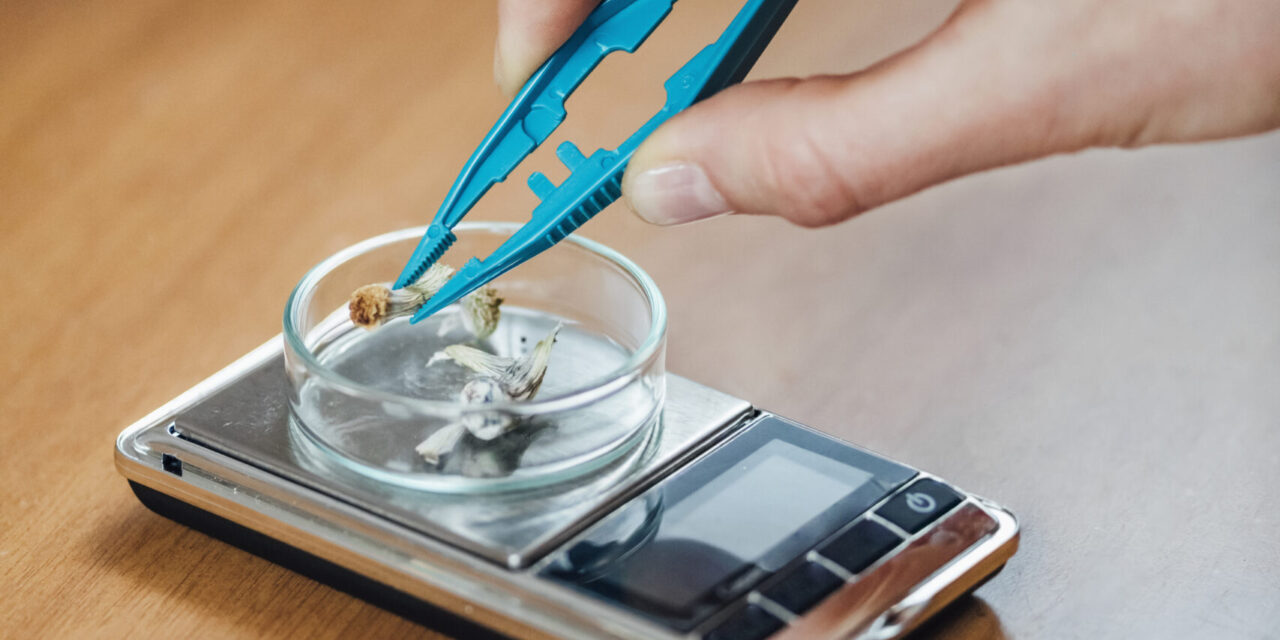Simply put, microdosing is the practice of eliciting a favorable experience or response by administering doses that are lower than those regarded as therapeutic. The standard microdose of dried psilocybin mushrooms, for example, is 0.1 to 0.3 grams. This dosage is far lower than a 25-milligram pill of psilocybin, which would provide a full-blown psychedelic experience. The intention is for users to experience a sub-perceptual dose, which could result in minor mood and cognitive effects even if they don’t experience substantial psychoactive effects.
The purpose of taking these smaller doses of psychedelics is not to “trip out” or become stoned. The idea is to experience some of the desired effects without being intoxicated or experiencing the symptoms of being high. Microdosing has some supporters who claim that in addition to improving professional performance and clarity, microdosing can also enhance mood and mental health conditions like depression and anxiety.
The Concept of Microdosing
Proponents of microdosing contend that psychedelic drugs interact with serotonin receptors in the brain in a way that increases neuronal plasticity, improves mood, enhances creativity, and improves cognitive performance at such low doses. Microdosing is thought to improve communication across various brain regions and encourage the formation of new neural connections.
Is Microdosing Effective?
Although there are many accounts of the advantages of microdosing, there hasn’t been much scientific study done on the subject. Most of the research on the effects of psychedelics has concentrated on higher dosages and how they affect mental health conditions like PTSD and depression.
Nonetheless, a few exploratory investigations have investigated the possible impacts of microdosing. For instance, a study that was published in the journal Psychopharmacology discovered that giving healthy volunteers small doses of LSD improved their focus, mood, and creativity. Another study that was written up in the journal PLOS ONE found that psilocybin microdosing was linked to less severe anxiety and depression symptoms.
These first results imply that there might be some advantages to microdosing. It is crucial to remember that the small sample sizes and lack of placebo control in this research limited the validity of their conclusions. Further investigation is required to make firm judgments regarding the efficacy of microdosing.
What are the benefits of microdosing?
Mood Enhancement and Reduced Anxiety
The main goals of microdosing are to improve mood and lessen depressive and anxious symptoms. Users have reported feeling happier, more upbeat, and more in control of their emotions after taking microdosing. Some have even gone so far as to claim that it has given them a stronger feeling of emotional connection and helped them overcome negative mental patterns. In a brief study that was published in the journal PLOS ONE, participants who received microdoses of psychedelic substances reported improvements in mood, emotional well-being, and mindfulness. According to a second study conducted by the Beckley Foundation, LSD microdosing was associated with milder forms of depression and anxiety.
Enhanced Creativity and Mental Performance
Microdosing proponents assert that it can enhance creativity and mental function and its possible mood-enhancing effects. Users claim to have better problem-solving skills, greater attention, and increased productivity. Some even credit microdosing for breakthroughs in their artistic endeavors.
You May Still Be Able to Function Normally Even at Low Doses
The fact that microdosing usually entails ingesting extremely small dosages of drugs, such as LSD or psilocybin, is one of its main advantages. Usually, these dosages are sub-perceptual, which means they aren’t potent enough to cause delusions or interfere with everyday activities.
This is one of the reasons why people who want the possible advantages of psychedelics without the strong psychoactive effects are turning to microdosing more frequently. Users frequently report feeling more focused, energized, and aware while yet being able to go about their everyday lives without experiencing any appreciable impairment. Microdosing should be approached cautiously, taking into account things like legality, personal sensitivity, and the lack of scientific agreement on the best dosages and long-term effects. If someone chooses to investigate microdosing, speaking with a healthcare expert or getting advice from knowledgeable practitioners can help guarantee
Purchasing and Guaranteeing Quality
It is imperative to put safety and quality first for individuals who investigate microdosing. To ensure purity and consistency, materials like psilocybin and LSD, which are frequently used in microdosing, should be obtained from trustworthy and recognized providers. It is important to conduct a comprehensive investigation and confer with proficient specialists to mitigate such consequences.







